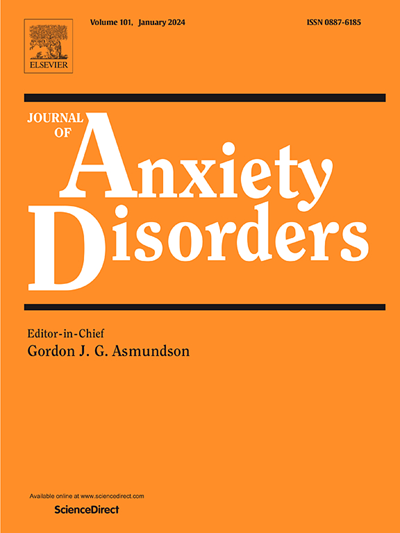简洁的多类别焦虑障碍风险评估:一种新的先进机器学习方法
IF 4.5
2区 医学
Q1 PSYCHIATRY
引用次数: 0
摘要
快速评估焦虑症风险对于有效的心理健康筛查和干预至关重要。然而,传统的调查工具,如das -42,在回答和评分方面是耗时的。我们使用了一种新颖的先进机器学习方法,以DASS-42为基础创建了一个简明的焦虑障碍量表。通过应用先进的机器学习技术和特征选择,我们创建了一个简洁的焦虑风险量表,同时保持了高效度。由此产生的模型需要更少的问题来有效地预测焦虑风险水平。该优化量表在在线工具中实施,用于快速自我筛选和临床使用。这一创新具有重大的社会意义,提供了可扩展、高效和准确的方法,促进更快、更早地检测和干预焦虑症,特别是在服务不足和高风险人群中。该研究强调了机器学习如何创建实用、易于获取的心理健康评估工具,从而有助于改善幸福感。本文章由计算机程序翻译,如有差异,请以英文原文为准。
Concise multi-class anxiety disorder risk assessment: A novel advanced machine learning approach
Rapidly assessing anxiety disorder risk is crucial for effective mental health screen and intervention. However, traditional survey tools such as DASS-42 are time-consuming in responding and scoring. We used a novel advanced machine learning approach to create a concise anxiety disorder scale based on DASS-42. By applying advanced ML techniques and feature selection, we created a concise version of the anxiety risk scale while maintaining high validity. The resulting model requires fewer questions to predict anxiety risk levels effectively. This optimized scale was implemented in an online tool for quick self-screening and clinical use. This innovation holds significant societal implications, offering scalable, efficient, and accurate methods that facilitate faster and earlier anxiety disorder detection and intervention, especially among underserved and high-risk populations. The study highlights how machine learning can create practical, accessible mental health assessment tools, contributing to improved well-being outcomes.
求助全文
通过发布文献求助,成功后即可免费获取论文全文。
去求助
来源期刊

Journal of Anxiety Disorders
Multiple-
CiteScore
16.60
自引率
2.90%
发文量
95
期刊介绍:
The Journal of Anxiety Disorders is an interdisciplinary journal that publishes research papers on all aspects of anxiety disorders for individuals of all age groups, including children, adolescents, adults, and the elderly. Manuscripts that focus on disorders previously classified as anxiety disorders such as obsessive-compulsive disorder and posttraumatic stress disorder, as well as the new category of illness anxiety disorder, are also within the scope of the journal. The research areas of focus include traditional, behavioral, cognitive, and biological assessment; diagnosis and classification; psychosocial and psychopharmacological treatment; genetics; epidemiology; and prevention. The journal welcomes theoretical and review articles that significantly contribute to current knowledge in the field. It is abstracted and indexed in various databases such as Elsevier, BIOBASE, PubMed/Medline, PsycINFO, BIOSIS Citation Index, BRS Data, Current Contents - Social & Behavioral Sciences, Pascal Francis, Scopus, and Google Scholar.
 求助内容:
求助内容: 应助结果提醒方式:
应助结果提醒方式:


